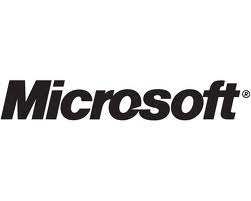
Microsoft is working with an Apache-licensed open-source project to make Hyper-V and Windows Servers an integral part of cloud-computing infrastructure.
The software giant is providing support and technical guidance to OpenNebula to put Hyper-V on a list of hypervisors that the project officially supports.
Prototype integration is expected in mid October and will ultimately support Hyper-V on Windows Server 2008 and Windows Server 2008 R2 SP1.
OpenNebula said here: "The integration will not require the installation of new services in the nodes, making quite simple and rapid to build an OpenNebula cloud on existing Hyper-V deployments."
The OpenNebula Project provides a management toolkit for setting up and running on-premise Infrastructure as a Service (IaaS) clouds.
These are clouds of the type built by service providers, or clouds such as Amazon's EC2, a service that provides capacity in the cloud for anyone who needs it, including firms hosting services for customers there.
Getting Hyper-V on an approved list of technologies that work with OpenNebula is an important step for Microsoft, because it would ensure Hyper-V and Windows are picked by providers rolling out IaaS, who might otherwise have gone Linux or who want the option of running a mixed environment.
OpenNebula manages storage, network, virtualisation, monitoring and security. OpenNebula is currently deployed on Debian, OpenSuSE and Ubuntu and uses KVM, Xen and VMware.
Why now support Hyper-V? According to OpenNebula: "Microsoft's Windows Server with Hyper-V platform is growing in the enterprise space and this collaboration with Microsoft will extend the list of supported hypervisors to include Hyper-V to give customers a great choice of enterprise ready virtualization platforms."
The OpenNebula Project claims more than 4,000 monthly downloads saying it is the number one choice for running IaaS among the telco, hosting and high-performance computing industries.

















+on+the+sets+of+FIR.JPG)

++Raju+Manwani,+(+Buniyaad+Group)++lighting+lamp+DSC_1080.JPG)

